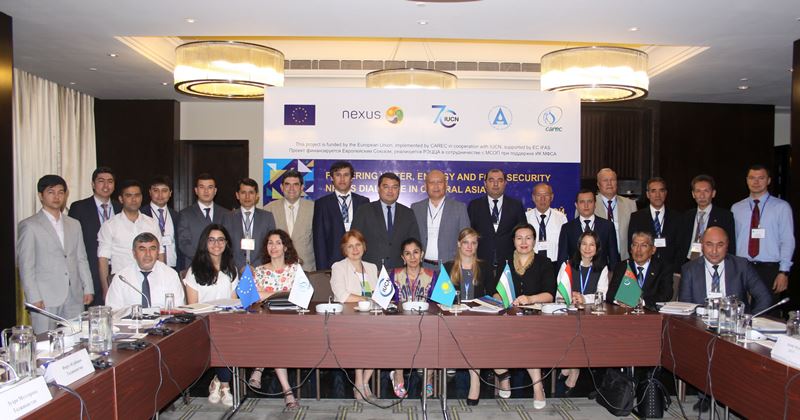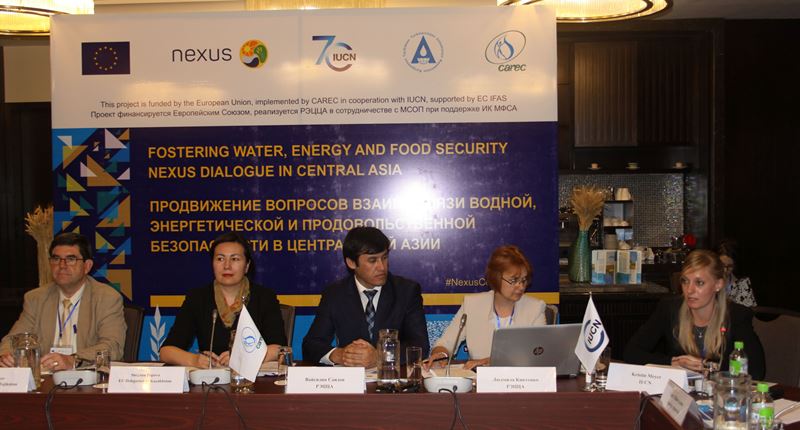Embedding nexus perspectives into investment projects
Central Asia has become increasingly vulnerable to drivers of global change resulting amongst others in increased disasters and extreme events, fluid markets and a changing political landscape. Strong institutions, capacities and broad investments in innovative solutions that address the interdependencies between water, energy and food security could help tackle these challenges.
IUCN is partnering with the Regional Environmental Centre for Central Asia (CAREC) in the frame of the EU-funded Central Asia Nexus Dialogue Project to embed nexus perspectives in the region and to integrate them into the design of investment projects.
At the recent Regional Steering Committee Meeting held in Dushanbe, Tajikistan on 18-19 June 2019, key partners and stakeholders from four Central Asian countries, namely Kazakhstan, Tajikistan, Turkmenistan and Uzbekistan, discussed investment project ideas that cover a wide range of transboundary natural resource management issues. A number of experts from International Financial Institutions provided valuable inputs with regards to funding opportunities.
“The EU promotes the Water-Energy-Food (WEF) Security Nexus approach as a fundamental shift from a purely national and sectoral approach to common inter-sectoral management of transboundary resources in Central Asia. It helps the region develop as an area of cooperation and connectivity rather than one of competition and rivalry,” stated Johannes Stenbaek Madsen, Head of Cooperation, EU Delegation to Kazakhstan.
To be successful, institutional frameworks and capacities need to be strengthened to ensure that such investment projects are interesting for a diverse range of investors, including the private sector and can be effectively implemented. Kristin Meyer, IUCN Nexus Central Asia Coordinator, presented the recommendations derived from an institutional analysis and capacity needs assessment. These sparked a lively exchange on next steps, especially in relation to the Nexus Roadmap for Central Asia that was developed in the frame of a week-long study tour organised as part of the Central Asia Nexus Dialogue Project.
A final conference at the end of 2019 will showcase all project results and provide insights into the future of the Water-Energy-Food Security Nexus in Central Asia.


